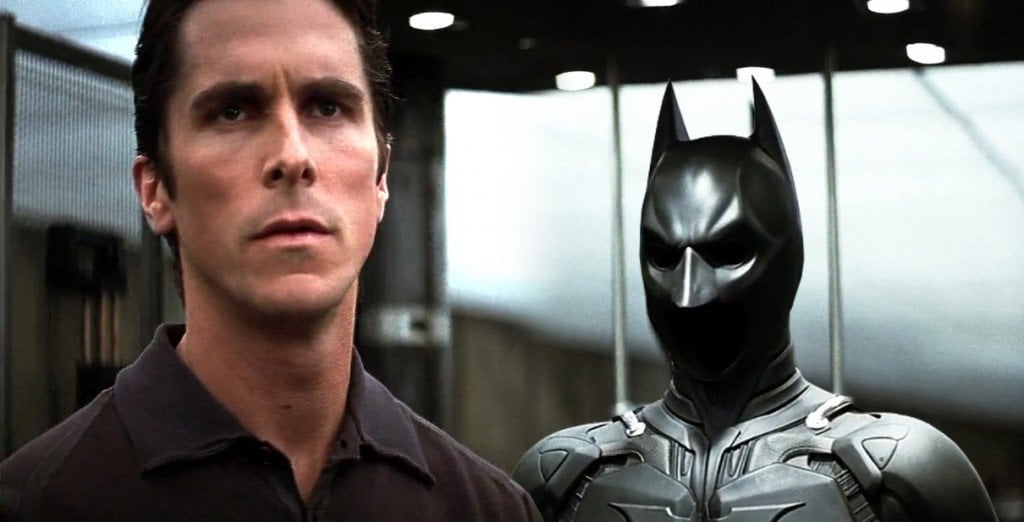
Why do we love superhero vigilantes?
I don’t mean real
ones. Real ones get arrested for monitoring police scanners while in full
Batman costume. I like the fictional ones like Jack Reacher and Paul Kersey,
the Charles Bronson character in Deathwish.
Both operate outside the law but with different motivations. Reacher is a
former MP who puts things right one small town at a time, his motivation pure.
He is a moral actor, a hero for the downtrodden. Kersey is a product of anger
and a deep need to get even because of a lawless system that protects
criminals. An unjust and corrupt legal process created him. Kersey seeks vengeance,
Reacher seeks justice. Both are extensions of our own need to pursue right and
settle scores.
Batman is the standard for fictional vigilante with the
least likely chance of pulling it off. Can you imagine a masked man with a cape
actually storming through cities and punching out criminals? Even in the best
case scenario bystanders would be shot or run over. There is an opening scene
in the Dark Knight where Batman
impersonators try to take out actual villains. It doesn’t go well. They use
shotguns and get beat up by mafia thugs. As funny as that scene was it felt
like Christopher Nolan was saying something about our human desire for justice,
if lack of ability and means.
Don’t say vigilantism doesn’t work, it depends on what
flavor you’re describing. In going after large criminal enterprises it’s
impossible to work alone. That’s why fiction is the best vehicle for vigilante
justice. Countries with weak central governments (Philippines, Columbia, Sri
Lanka) find themselves overrun with powerful criminal enterprises and no hope
of containing the scourge. Often their only hope of protecting citizens is
through private armies. Without proper oversight they can go too far with violence, operating in a vacuum, accountable to no one.
Defending small communities from rioters is easier because
the objective is very specific, protect the house. During the Los Angeles riots
in 1992 Korean American shop owners formed loose alliances to protect their
properties against looting. Over 2000 Korean owned shops in South L.A. suffered
some kind of damage from looters (officially) angry over the Rodney King
verdict. But whenever looting happens you can count on a significant portion of
people just taking advantage of the chaos to get some free stuff. If your
memory is a little fuzzy about this incident, click here. Hoping to keep the
damage limited Koreans armed up and started patrolling shops and coordinating
with others to protect their livelihoods’.
If African Americans had an animus
toward law enforcement, Koreans had acquired it after the riots. The police
basically left them to fend for themselves. Cops became persona non grata in
the dangerous weeks following the Rodney King verdict.
Vigilantism is ugly when shot through with racism however. The Ku Klux Klan in
the 1920s attacked Blacks and immigrants, labor leaders and Catholics and Jews.
But the original post war Klan was far more concerned with keeping Black
Americans in line through violence and intimidation. The resurrected Klan of
the twenties found broad appeal in a lot of northern states like Ohio and
Indiana. Its violence and corruption eventually ruined it as a mainstream vigilante
group. Klan members were generally law abiding citizens with deep seated hatred
toward any ‘immoral’ groups of people. They acted outside the law through
lynching and intimidation campaigns. Membership in the Klan was dressed up in Christian language but rotten at the core.
The early Klan that popped up in the South during
Reconstruction received aid from resentful white cops and judges. It doesn’t
qualify as vigilante in the way that John Brown’s raid on Harpers Ferry did 10
years prior. Brown resisted the established laws because they permitted slavery.
He took up arms against the federal government as a ‘righteous’ act. His
vigilantism is closer to terrorism despite the righteous cause. An armed raid
on a federal weapons facility to start a slave insurrection counts as rebellion.
From a historical point of view, Brown’s raid gets better treatment today than
it did even 50 years ago. Slavery being a stain on the country’s history, Brown’s
abolitionist sentiment won the argument with the preservation of the Union.
The point is vigilantism isn’t just one thing. It isn’t
always reactions to unfair laws or a corrupt system. It isn’t always concerned
with settling scores. It can be rooted in hatred and have official support or it
can be rooted in security and have official support.
President Duterte in the Philippines takes the most
aggressive approach to policing which seems necessary in a lawless
country. The Philippines has the highest rate of murder in South East Asia, since at least 2014. He gives police officers shoot to kill orders when confronting drug
dealers, some 20,000 deaths have occurred. Polls show the citizens appreciate his hard approach to crime by about 70 percent favorable. The numbers speak for themselves, most crime statistics
(rape, murder) have fallen by over 20 percent across the board for that
country. Deputizing thousands police and telling them to kill drug dealers is
an obvious slippery slope. But concern with civil rights for drug gangs and
criminals is misplaced. Law abiding citizens deserve better and if governments don’t
provide it, they find it elsewhere.
When basic security is non-existent and gangs kill women and children, It might take a private army to put things right. I’m
not advocating for it as much as pointing to very real consequences of not
dealing with violence through the normal legal process. New York City was a
rough place in the 70’s and 80’s. But homicides and robberies (almost all major
crime stats) dropped in the 90’s due to heavy police presence and a crack-down
on crime everywhere. Civil libertarians complain about the ‘stop and frisk’
policies but the difference is clear. New York decided to establish security
first, the right move. Security comes before everything else, without it you
don’t get culture or liberty.
I think the reason we write books and film movies like Death Wish or the Christopher Nolan Dark
Knight Batman series is that people want a sense of law and order deep down. We
desire justice; it’s why we are so upset when drunk drivers kill the innocent
or a gang war spills into a neighborhood. At a fundamental level we understand
the importance of a moral society rooted in justice. My hope is that vigilante
justice of the movie variety stays fictional and law enforcement gets it right
everywhere. They’ll make mistakes but if people think the police and courts are
a force for ill, violence will surge again. Better to get security right protecting the most vulnerable first.






